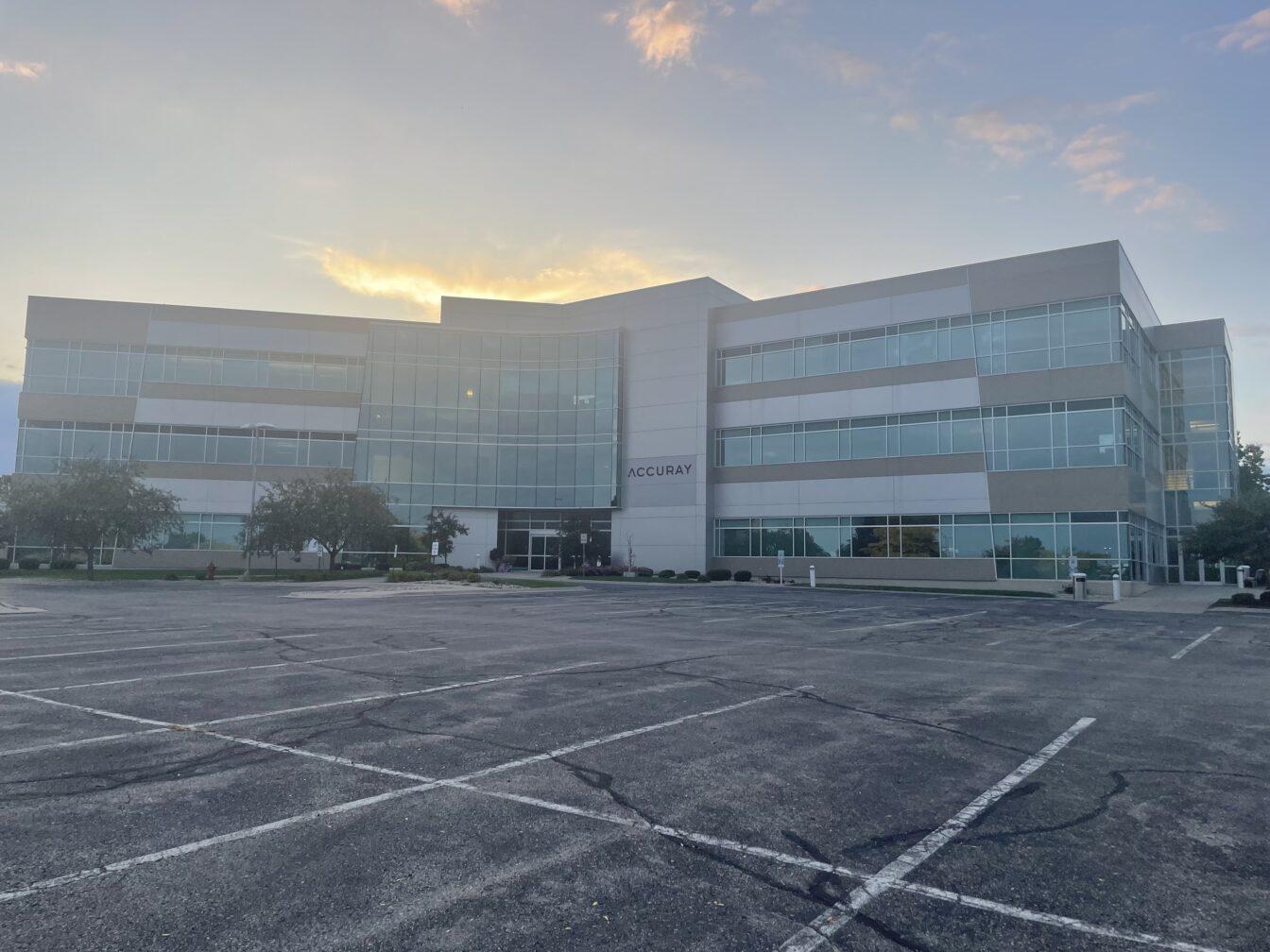Accuray, a medical equipment manufacturer, recently relocated its headquarters to Madison, highlighting the city’s growing biotech industry, according to the Greater Madison Chamber of Commerce.
The transition took effect July 31, 2023, according to the Wisconsin State Journal. Before the move, Accuray had already found connections in Madison. In 2011, Accuray acquired TomoTherapy, a Madison-based radiation treatment company.
District 8 alder says proposed building height increases won’t obstruct State Capitol view
TomoTherapy manufactures technology for alternative cancer treatment and produces radiation technology that allows for short and safe treatment, according to Accuray’s website. The technology Accuray acquired from TomoTherapy spares healthy tissue by changing treatment intensity based on the severity of a tumor.
Before the relocation, Accuray had more than 900 employees working worldwide, according to the Accuray website. A graphic on the website shows employees work in locations ranging from Sunnyvale, California, to Hong Kong and Tokyo. The number of employees didn’t change following the relocation, but now more than 300 work in Wisconsin, according to the Wisconsin State Journal.
A biotech company like Accuray moving to Madison is not unprecedented. In fact, biotech and medical services companies are some of the largest companies in the area. In 2021, Madison Region Economic Partnership reported that Epic Systems and Exact Sciences, both biotech firms, are two of the biggest employers in Madison.
Epic Systems aggressively recruits recent college grads, according to University Park Research. While Madison used to be labeled a “boomerang city” — a place where students come to attend college, before leaving to work somewhere else — Epic’s recruitment efforts have compelled college students to settle here for their early careers.
Madison has been a national hub of innovation for years, according to a 2019 report from the Brookings Institution. The report showed Madison has 80.8 STEM doctoral degree holders per 100,000 people. Comparatively, the average for all U.S. metropolitan areas is 10.6 STEM doctoral degree holders per 100,000 people.
TekniPlex, which manufactures healthcare and consumer-grade materials, announced its plans for a $46 million medical manufacturing plant in Madison, according to PlasticsNews. TekniPlex Healthcare is investing in the Madison area due to the skilled workforce.
The University of Wisconsin heavily contributes to Dane County’s skilled workforce. UW biomedical engineering student Zach Spears, a senior, said many of his fellow students work or intern for biotech companies in the Madison area, before and after graduation. UW’s extensive biotechnology and medical research influences these corporations, Spears said.
UW’s biomedical engineering program is the eighth best in the nation for undergraduates and the 10th best for graduates, according to the UW College of Engineering. Additionally, the department has $35 million in annual research funding. These funds are used to research areas like biomaterials, nanotechnology and tissue engineering.
Madison City Council rules on duration times, pet possession
“A lot of the research at UW–Madison siphons into companies over time,” Spears said.
UW Professor Emeritus of Economics Timothy Smeeding agreed that the expansion of healthcare firms in Madison will be very positive for Wisconsin graduates going into the biomedical industry.
Smeeding said this will benefit Madison because it will slow down the city’s “brain drain,” where educated and skilled residents leave for other cities. It will also increase economic growth in Madison.
This is rare for Wisconsin, where many local economies and populations are shrinking rather than growing. In other words, the biomed industry will prevent very qualified engineers and scientists from leaving the area in search of other jobs, Smeeding said.
Spears said the expansion of medical device firms in Madison will influence many biomedical engineering students to stay in the Madison area rather than moving to other biomedical hotspots like Minneapolis.
While the expansion of the field could create more jobs for UW graduates, it will also cause issues regarding city planning, according to Smeeding. Population growth could exacerbate issues for residents already impacted by housing development and traffic congestion. Smeeding said the negative effects of development projects and ongoing construction are felt across the whole city.
“It’ll add jobs and further invigorate the city, which is already going crazy in terms of construction,” said Dr. Smeeding, “you can see it, feel it everywhere, you can’t get around the city at all.”
In an interview with Wisconsin Examiner, Sen. Tammy Baldwin (D-Wis) said Wisconsin is at the forefront of biotech and medicine. Baldwin also said incorporating more technology will advance healthcare and lead to economic growth in communities around Wisconsin.
ttps://badgerherald.com/news/2023/09/20/kia-and-hyundai-vehicles-at-higher-risk-of-being-stolen-in-madison-area/
Dr. Thomas Mackie was a physicist at UW before he retired, and he was one of the original developers of TomoTherapy, the radiation treatment from which Accuray’s recent acquisition got their namesake, according to UW’s Department of Medical Physics.
In fact, Mackie was directly responsible for the growth of biotech and medtech businesses inside and outside of Madison. Mackie founded TomoTherapy, co-founded medtech firm HealthMyne and served on the board of medical isotope company SHINE Medical Technologies, according to the International Commission on Radiation Units and Measurements.
“Madison has a strong biotech community with companies like Exact Science and Promega,” Spears said. “It is exciting to see biotech companies expand into Madison.”












